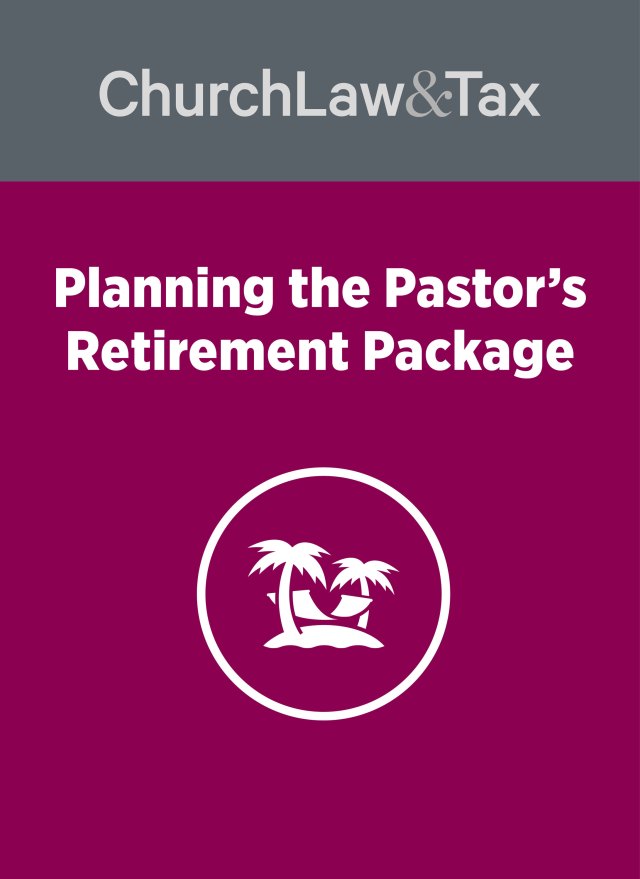While most ministers are employees for federal income tax reporting purposes, the tax code treats them as self-employed for Social Security and Medicare with respect to services they perform in the exercise of their ministry. This means that ministers are not subject to the employee’s share of Social Security and Medicare taxes (i.e., the FICA taxes, of which employers pay 7.65 percent and employees pay 7.65 percent), even though they report their income taxes as employees and receive a Form W-2 from their church.
Rather, ministers pay the self-employment tax (SECA) of 15.3 percent.
Ministers who work after they retire must continue to pay SECA on their ministerial income and wages—unless they exempted themselves from self-employment tax as a minister and they are employed in a ministerial capacity.
Requirements for a SECA exemption
If ministers meet several requirements, they may exempt themselves from self-employment taxes with respect to their ministerial earnings. Among other things, the exemption application (Form 4361) must be submitted to the IRS within a limited time period. The deadline is the due date of the federal tax return for the second year in which a minister has net earnings from self-employment of $400 or more, any part of which comes from ministerial services.
Further, the exemption is available only to ministers who are opposed on the basis of religious considerations to the acceptance of benefits under the Social Security program (or any other public insurance system that provides retirement or medical benefits).
A minister who files the exemption application may still purchase life insurance or participate in retirement programs administered by nongovernmental institutions (such as a life insurance company). Additionally, the exemption does not require a minister to revoke all rights to Social Security benefits earned through participation in the system through secular employment.
A minister’s opposition must be to accepting benefits under Social Security (or any other public insurance program) which are related to services performed as a minister. Any other nonreligious considerations are not a valid basis for the exemption, nor is opposition to paying the self-employment tax.
Economic reasons are also not acceptable. In 1970, the IRS ruled that ministers who exempt themselves from self-employment taxes solely on the basis of economic considerations are not legally exempt. Revenue Ruling 70-197. The IRS concluded:
The taxpayer filed the Form 4361 solely for economic considerations and not because he was conscientiously opposed to, or because of religious principles opposed to, the acceptance of any public insurance of the type described on the form. Accordingly . . . the taxpayer did not qualify for the exemption since the Form 4361 filed solely for economic reasons is a nullity.
Exemption effective upon approval by IRS
The exemption is only effective when it is approved by the IRS. Few ministers qualify for the exemption. Many younger ministers opt out of the self-employment tax without realizing that they do not qualify for the exemption.
In general, a decision to opt out of self-employment tax is irrevocable. Congress did provide ministers with a brief “window” of time to revoke an exemption by filing Form 2031 with the IRS. This opportunity expired in 2002 and has not been renewed. The IRS also provides guidance for a minister who opted out for reasons solely based on economic considerations. The process for seeking such a revocation requires extensive documentation. More details are provided in chapter 9 of the annual Church & Clergy Tax Guide.
Exemption only applicable for compensation for ministerial services
An exemption from self-employment taxes applies only to compensation for ministerial services. Ministers who have exempted themselves from self-employment taxes must pay Social Security taxes on any non-ministerial compensation they receive. They remain eligible for Social Security benefits based on their non-ministerial employment assuming that they have worked enough quarters. Generally, 40 quarters are required.
Also, the Social Security Administration has informed me that ministers who exempt themselves from self-employment taxes may qualify for Social Security benefits (including retirement and Medicare) on the basis of their spouse’s coverage, if the spouse had enough credits. However, the amount of these benefits will be reduced by the so-called “windfall elimination provision.” Contact a Social Security Administration office for details.
The amount of earnings required for a quarter of coverage in 2022 is $1,510. A quarter of coverage is the basic unit for determining whether a worker is insured under the Social Security program.
Additional reading
For more on the exemption from self-employment taxes, see the following:
Take me back to “Rich’s 15 Must-Knows for Pastors” to choose an article of interest or that fits a particular need.



